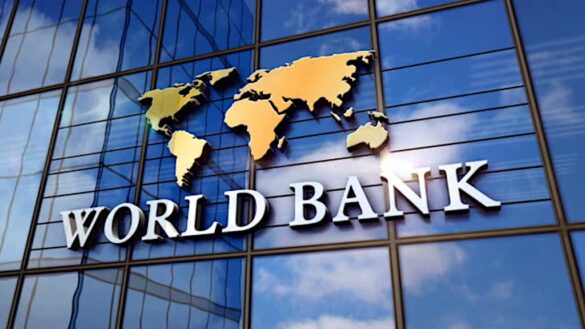The World Bank has approved a $1.5 billion loan to Nigeria to support the federal government’s fuel subsidy removal and tax reform initiatives.
This financing is part of the Reforms for Economic Stabilisation to Enable Transformation Development Policy Financing (DPF) aimed at boosting Nigeria’s economic stability.
The loan was approved on June 13, 2024, with the first disbursement of $750 million taking place on July 2, 2024, followed by the second tranche in November 2024.
The release of the second tranche was contingent on meeting specific economic reform conditions, including the ongoing tax and subsidy reforms.
The loan structure includes two parts: a $750 million credit from the International Development Association (IDA) with a 12-year maturity and a 6-year grace period, and another $750 million loan from the International Bank for Reconstruction and Development (IBRD), which has a 24-year repayment term and an 11-year grace period.
According to the World Bank, Nigeria exceeded the criteria for the loan, implementing major reforms like the removal of fuel subsidies, harmonizing the exchange rate, and overhauling the tax system.
These reforms aim to stabilize the economy and encourage investment.
In October 2024, Nigeria’s government introduced a comprehensive tax reform package to the National Assembly, which included changes to the VAT system and simplified tax laws.
Despite political debates, particularly opposition from Northern Nigerian leaders, the reform bill was a key milestone in fulfilling the World Bank’s requirements.
The World Bank also noted Nigeria’s progress in fully deregulating the fuel sector, allowing market-driven pricing and fostering competition.
Additionally, the government has committed to using standard debt instruments instead of deficit monetisation to finance the nation’s budget.
According to the World Bank document, “The borrower has prepared and submitted to the National Assembly on October 3, 2024, a comprehensive package of tax reforms, which not only reform the VAT regime but also simplify tax policy laws and tax administration.
“This document summarises the progress made under the Reforms for Economic Stabilisation to Enable Transformation Development Policy Financing for the Federal Republic of Nigeria (Borrower or Recipient), which was approved by the Executive Directors on June 13, 2024.
“The DPF is a standalone operation comprised of two tranches: (1) the first tranche comprising $750m credit from the International Development Association (Association) (shorter maturity loan terms with a 12-year maturity and grace period of 6 years, Credit No. 7567-NG); and (2) the second tranche comprising a $750m loan from the International Bank for Reconstruction and Development (Bank) (US dollar-denominated, commitment-linked loan with a 24-year maturity and grace period of 11 years, Loan No. 9683-NG).
“The Financing Agreement and Loan Agreement were signed and declared effective on June 19, 2024, and June 26, 2024, respectively. The first tranche was released on July 2, 2024.
“Reforms have also been implemented to fully deregulate the fuel market, ensuring that retail prices are determined by market conditions and opening the sector to competition. The authorities are following through on their commitment to cease deficit monetisation, relying instead on standard debt instruments to finance the deficit.”











